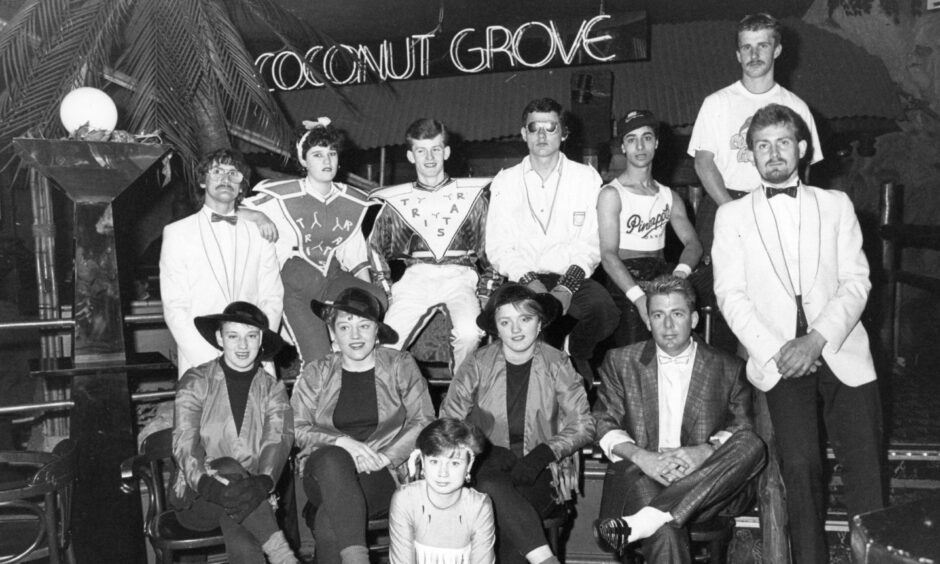
The Coconut Grove opened 40 years ago and gave Dundee clubbers the chance to live out their fantasies in “true tropical splendour”.
Dundee’s “new corner of the Caribbean” was advertised as the “hottest club in town”.
It was the place to “forget about mortgages and bills”.
The nightclub at 150 Marketgait originally became famous as the JM Ballroom when local businessman James Murdoch Wallace entered the dancing scene in 1954.
In 1975 Mr Wallace’s son, Murdoch, completely refurbished the JM. The opening of the Barracuda changed the whole idea of dancing.
The Barracuda featured swaying palm trees, coral reefs, caves and fish swimming in rock pools. Top acts included the Eurythmics, Tony Christie and Frankie Vaughan.
The layout behind the doors was based on the submarine Nautilus, created by Jules Verne in his book 20,000 Leagues Under the Sea.
The underwater themes were gone by March 1984, however.
That followed the name change and extensive £250,000 facelift by Mecca Leisure.
Could you keep your cool in the tropics?
Coconut Grove advertised for “go-ahead people with outgoing personalities”.
They wanted staff who were “young and good looking” to fill a number of vacancies before the opening.
Jobs included receptionist, security staff, hat check staff, bar persons, lighting operators, buffet staff and trainee disc jockeys.
Bosses held interviews in February 1984.
Female objectification was alive and well 40 years ago – in adverts that would not see the light of day now.
One asked “girls to fit fashion sizes 10-14 please”.
Were you the cool DJ required for the tropical climate?
Reality was suspended when Coconut Grove appealed for a “taped application” from a “fast talkin’, soul searchin’, plastic spinnin’, street cruisin’, high rollin’ disc jockey”.
Coconut Grove was completely painted throughout in green, grey and red.
Do you remember the ‘unmistakable décor’?
An Evening Telegraph advertising feature in 1984 highlighted the unmistakable décor.
Outside the club, neon palm trees and lights attracted clubbers to what general manager Derek McPhail described as “fantasy land”.
Special sputnik lights would revolve “giving the effect that the whole place is moving”.
Lighting would “create a waterfall effect” in the centre of the floor.
Then there was the special “jockey” system on the floor.
“Nowadays with all the effects, the DJ has more to do,” said Mr McPhail.
“We want to let him get on with the musical side and get involved with the customers.
“So we’re going to have a ‘light jock’.
“He’ll be solely responsible for the lights and sit behind the DJ.”
The Evening Telegraph said the jocks’ stand “has a touch of the Caribbean with its wood and corrugated iron roof”.
It read: “Part of the seating area echoes this too with woods iron roofs and storm lanterns.
“Banana boxes will serve as tables!”
Dundee teenagers were drinking ‘cocktails’ at Coconut Grove
Managers carefully selected staff from hundreds of applicants in February.
“The image we’re looking for for Coconut Grove is as a place where people can come and live out their fantasies, and forget about mortgages and bills,” Mr McPhail added.
There would be “bar staff, floor girls and a novel touch, hospitality girls”.
Their sole job would be to “make sure that the customers are being looked after and things are running smoothly”.
They would also advise about forthcoming events at the club.
There were plans to introduce membership with a number of discounts and offers.
Running Coconut Grove meant a return to Dundee for Mr McPhail. He had previously worked at Tiffany’s and was delighted to have the chance to spearhead the facelift.
Mr McPhail described plans to attract “young teenagers” through a “Boogaloo Night”.
That was a safe place for Dundee’s youth to experience the club scene.
“Kids, probably in the age group from about 14 to 18, can come in and be treated like adults,” he said.
“They’ll be greeted by staff and be able to buy cocktails at the bar – all strictly non-alcoholic.”
Chin, chin.
Who partied at Coconut Grove in the 1980s?
What tunes would you have been dancing to when Coconut Grove opened?
Relax by Frankie Goes to Hollywood, Robert De Niro’s Waiting by Bananarama and 99 Red Balloons by Nena all would have been blasting out of speakers in March 1984.
The nightclub became the city’s go-to place for Pina coladas and plastic palm trees.
Dave Houston was lightning quick serving up drinks behind the bar.
The 20-year-old from Newton Mearns in Glasgow was studying dentistry by day at college and working as a barman at night for money to pursue his Olympic dream.
The Sunday Post said Dave was also one of the best sprinters in the country.
Among the party-goers at Coconut Grove in the 1980s were some of the generation’s biggest singers, soap stars and personalities.
The reformation of pop duo Dollar brought Thereza Bazar and David Van Day to the dancefloor in 1986. That was alongside a now-mandatory nightclub booking for Coronation Street actor Chris Quinten.
Who donated their appearance fee to charity?
The band Danny Wilson returned from a successful US tour and arrived to meet their young fans at the under-18 disco before Christmas in 1987.
The three musicians were riding high on the success of their first album. The guys waived their appearance fee with the cash given to the Brittle Bone Society.
Things got even better in 1989.
Pete Waterman brought a host of music stars with him to perform as part of his Hitman Roadshow. That saw a long queue of revellers snaking down the Marketgait.
The roadshow was touring Britain, encouraging top stars to appear in venues that may normally miss out on the big names.
Sinitta, Sonia and Big Fun in Dundee
It was the hottest ticket in town and the acts which performed in Dundee included Sinitta, The Reynolds Girls, Girls Talk, The Shooting Party, Big Fun and Sonia.
The neon flamingo and plastic palm trees remained when they decided to ditch Coconut from the name and call it The Grove.
But the Dundee club was living on borrowed time.
Things started to go downhill.
Chief Constable Jack Bowman submitted a letter of complaint to Dundee Licensing Board following 17 instances at the premises between January and July 1993.
Most were disturbances outside the nightclub.
They closed it down.
Then a blaze gutted The Coconut Grove in October 1994. The fire caused an estimated £1 million of damage.
Ironically, the licensing board had given it permission to re-open only the day before the fire after a year-long shut down.
So the owners didn’t switch the neon palm trees back on and club king Chris Quinten had to flash his pearly whites elsewhere.
The city’s first 24-hour casino opened on the derelict site in 2009 meaning it became pounds that counted where the almighty Dollar once ruled.
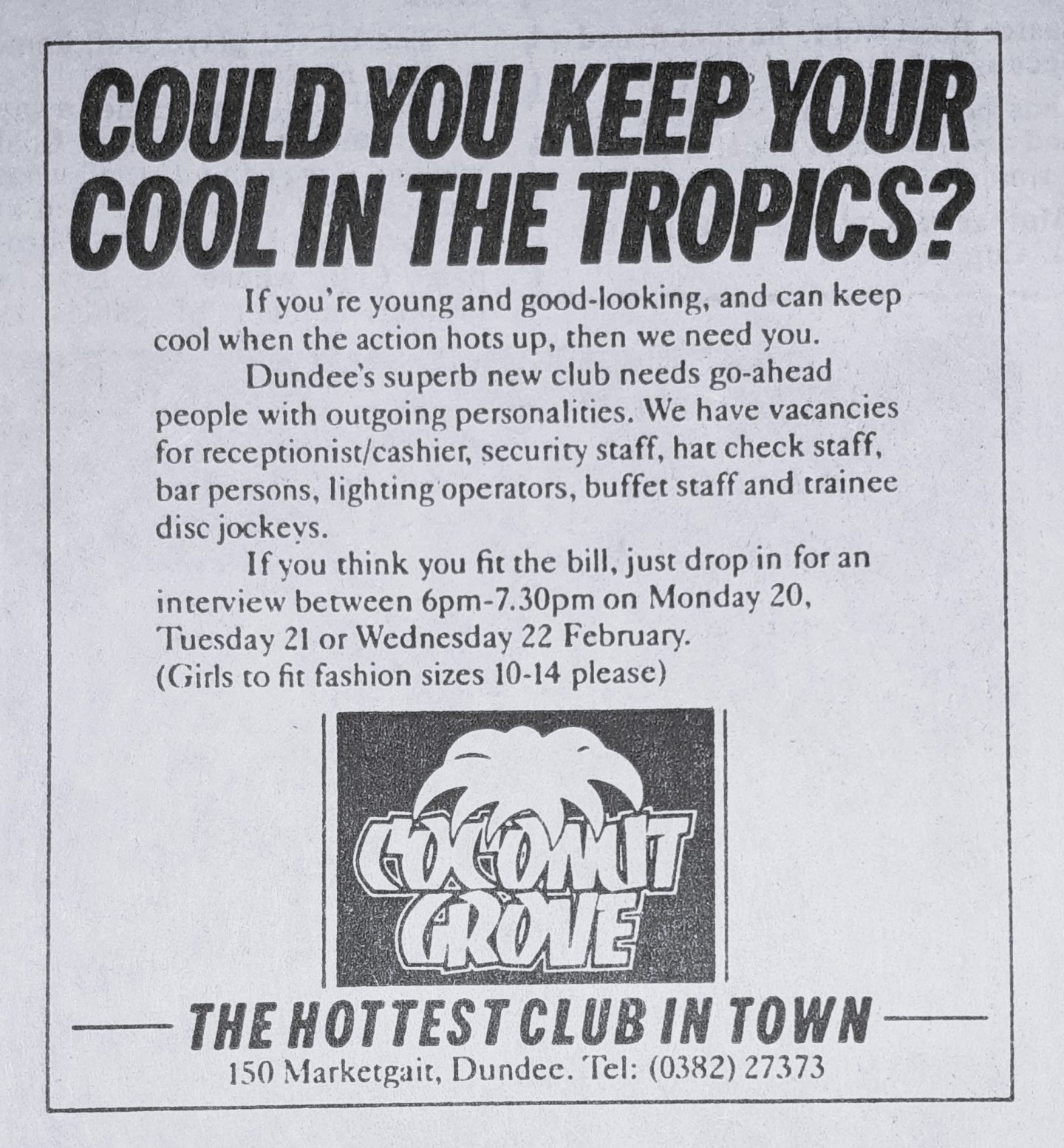
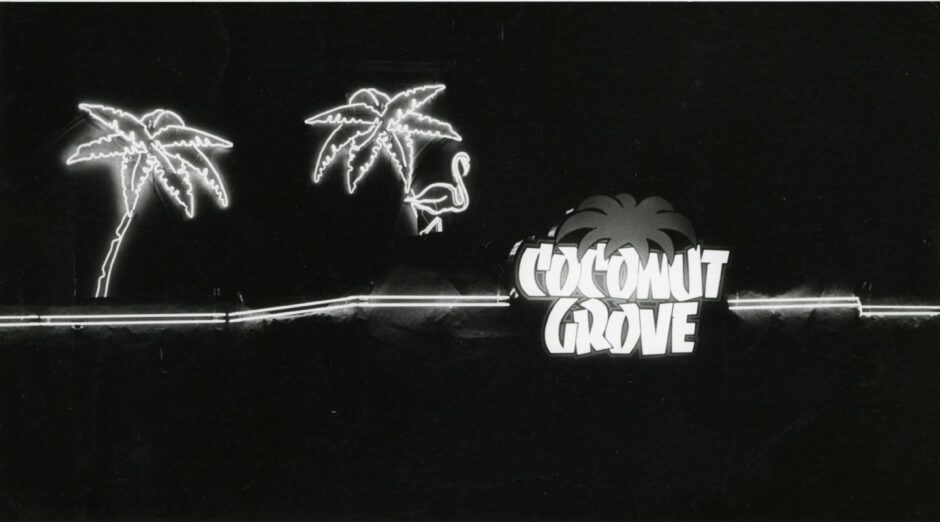
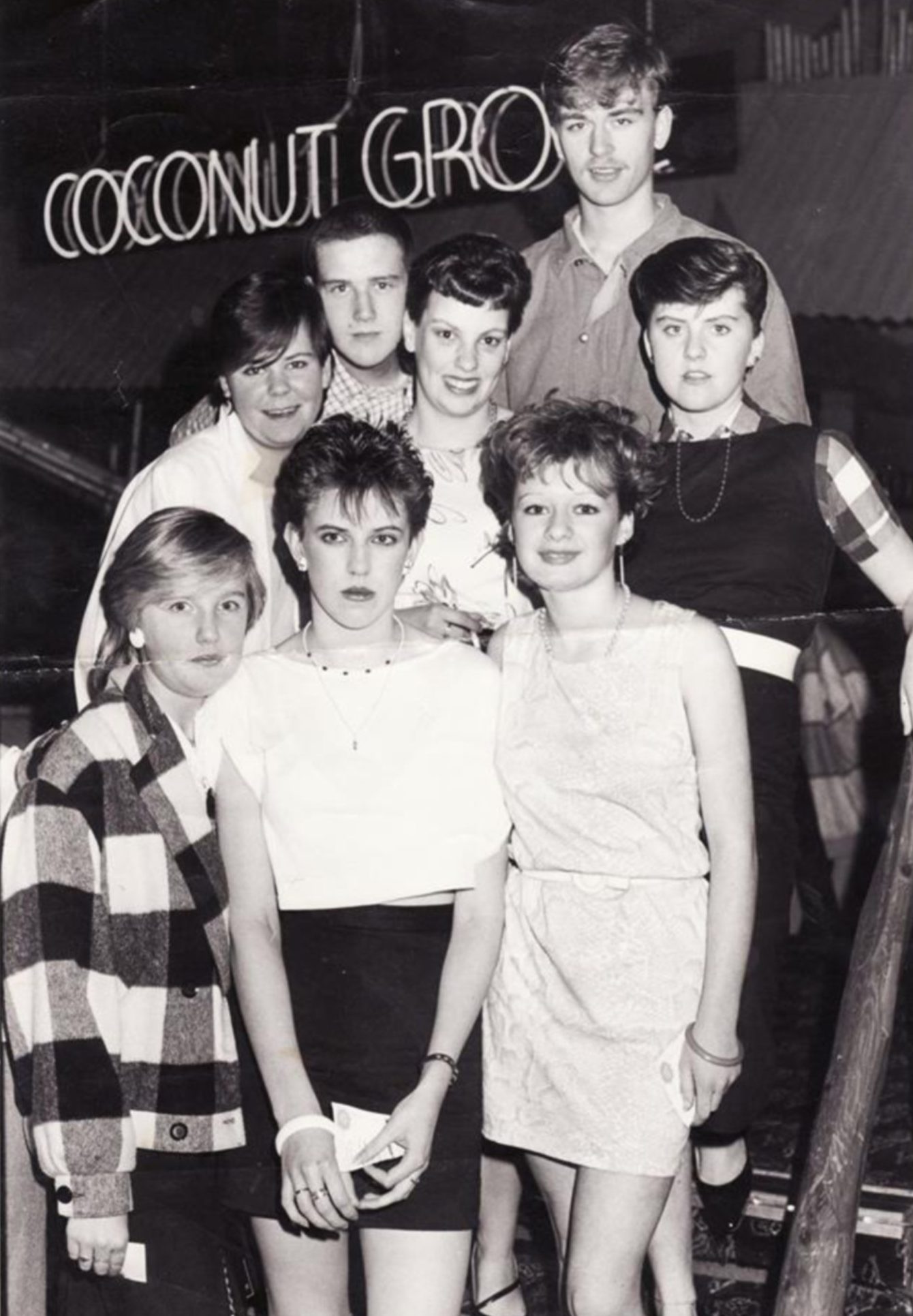
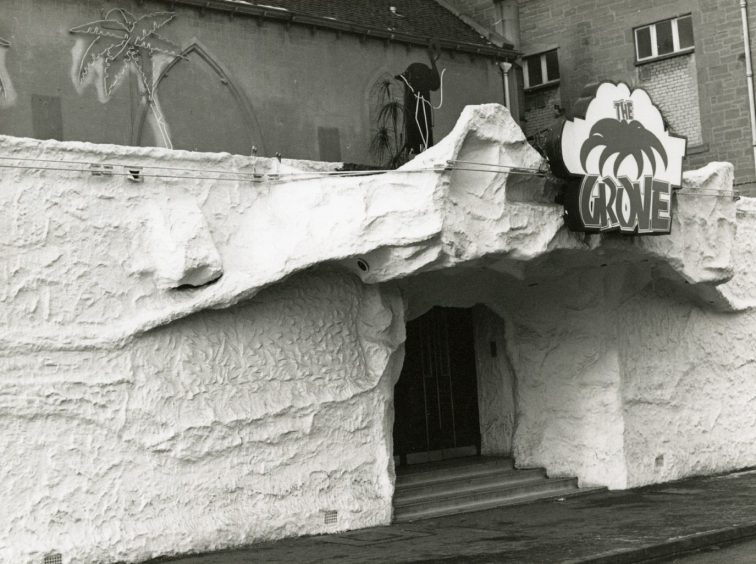
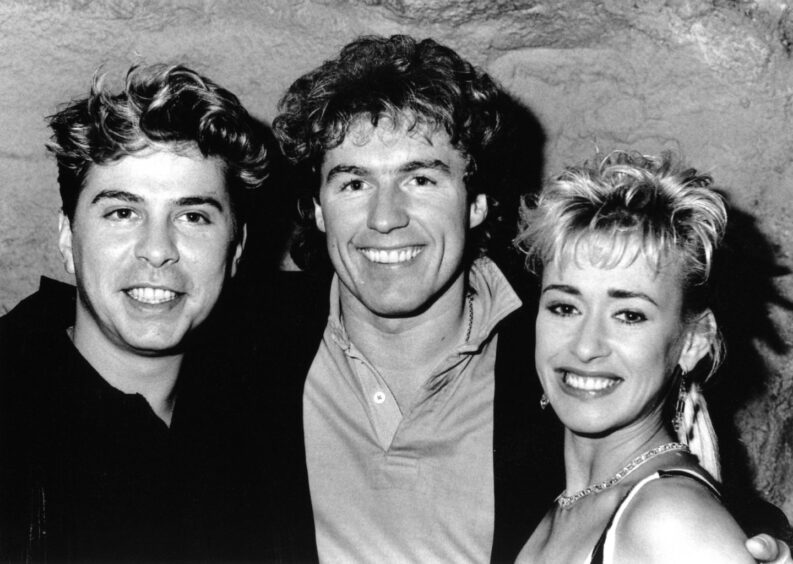
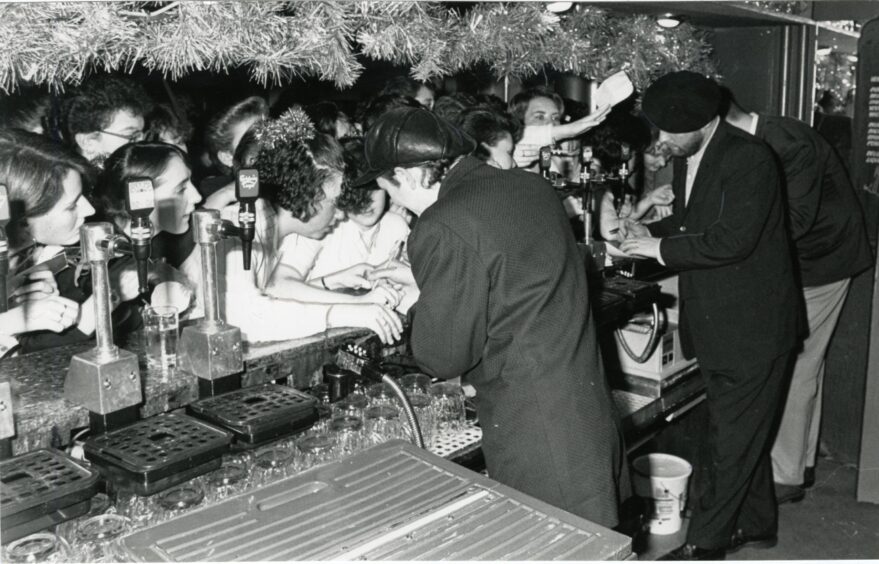
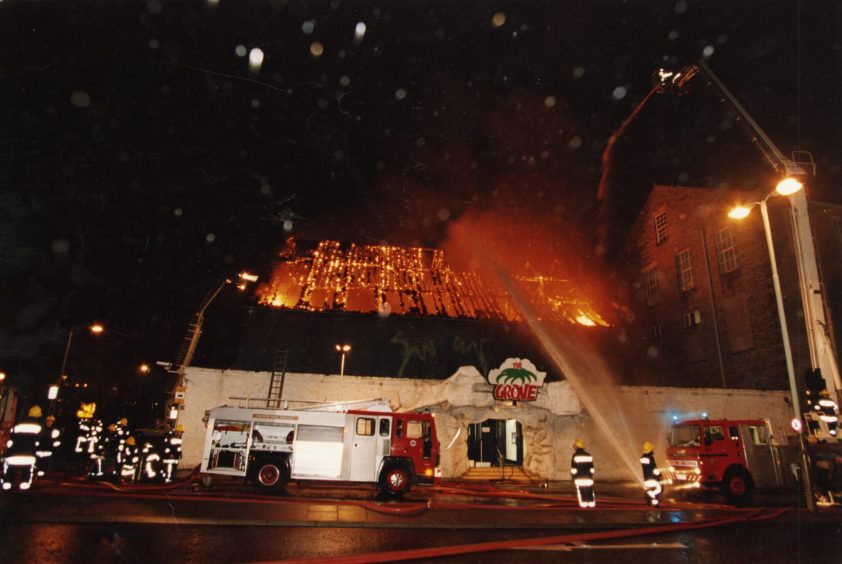
Conversation